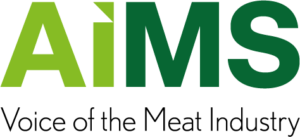China Expands Access for Spanish Pork Amid Tariff War
China Signs Agricultural Trade Deal with Spain Amid US-China Tariff Tensions
Beijing/Madrid, April 11 (Reuters) – China has signed two new agricultural trade protocols with Spain, covering Spanish pork and cherries, in a move to strengthen ties with the European Union amidst intensifying US-China trade tensions. The agreement was announced by Spanish Prime Minister Pedro Sánchez during his visit to Beijing on Friday.
Pork Deal Opens Doors for Offal Exports to China
The new protocols include pork products that were previously restricted, such as pork stomachs—a delicacy in China but not widely consumed in Europe. The agreement marks a significant step forward for Spain’s meat industry, opening fresh opportunities in the world’s largest pork import market.
Daniel de Miguel, International Manager at Interporc, Spain’s pork producers association, noted the importance of the deal:
“This new inclusion is vital, as pork offal—such as stomachs, ears, and feet—is in high demand in China but often has limited value in European markets.”
The National Association of Spanish Meat Industries (ANICE) also welcomed the deal, citing the increasing global trade volatility:
“In a context of enormous international commercial turbulence, we welcome this gesture from China, which opens new doors for our pork exports,” the organisation said in a statement.
Strategic Timing Amid US-China Tariff Escalation
This agreement comes shortly after US President Donald Trump raised tariffs on Chinese imports to 145%, prompting China to retaliate with 125% duties on US goods. Amid this escalating tariff war, China’s trade pivot towards the European Union is seen as a strategic counterbalance.
Potential Impact on Anti-Dumping Probe
Analysts believe the pork deal could signal a softening in China’s stance on its ongoing anti-dumping investigation into EU pork—a probe launched in response to EU tariffs on Chinese electric vehicles.
“This is great news for Spain’s pig farmers,” said Even Rogers Pay, agriculture analyst at Trivium China. “It suggests Chinese regulators may delay or ease the pork investigation, similar to what we’ve recently seen with EU brandy.”
The investigation, if fully enforced, could heavily impact top EU pork exporters like Spain, Denmark, and the Netherlands, whose exports to China are dominated by offal cuts not commonly consumed in Europe.
Strengthening EU-China Agricultural Trade
The agreement underscores China’s broader strategy of building economic bridges with the EU while reducing reliance on the US during ongoing trade disputes. It also offers a boost to Spain’s agri-food sector, particularly amid volatile international market conditions.
Key Takeaways:
-
China and Spain sign trade deal covering pork (including stomachs) and cherries.
-
The deal may ease pressure from China’s anti-dumping probe on EU pork.
-
Agreement comes amid escalating US-China tariffs and trade realignments.
-
Positive outlook for Spanish pork exports and EU-China agri-trade relations.
Original source: Reuters
